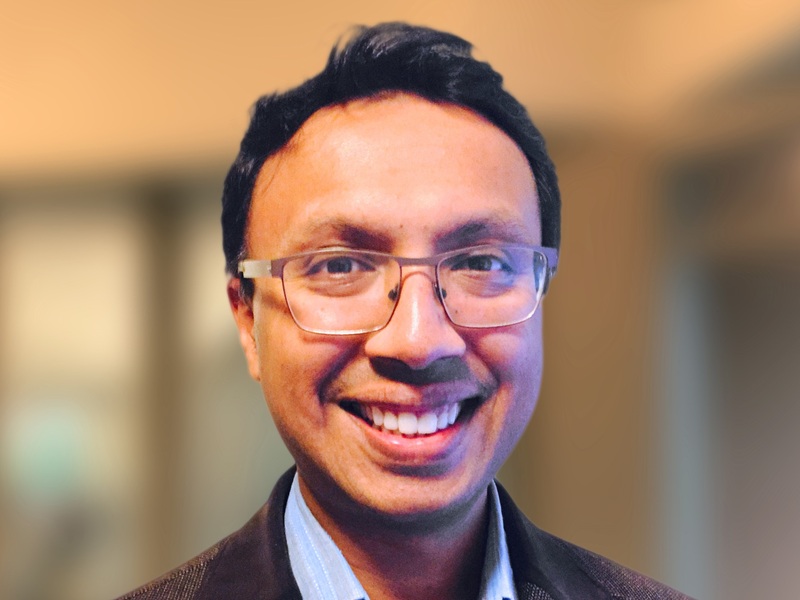By Lauren Bailey
Arijit Banik, treasurer of York University’s $721M endowment
fund, has learned, in weathering four different financial crises throughout his
lengthy career, that balancing liquidity needs with diversification is crucial
when riding out the storm.
“With this volatility also comes opportunity,” he said. “Warren Buffett was criticized for the longest time for all the cash he had on hand. This is a great period where all of that cash on hand is going to be deployed for very under-valued assets.”
Indeed, in anticipation of a new administration entering the White House, Banik said his team opted, like Buffett, to be a bit more cash heavy going into the endowment fund’s fiscal year end. “We already knew that we had positive returns for the year. So, we’re kind of locking those positive returns in and having a little bit more of a cash cushion just to buffer things.”
While he said the strategy won’t protect the fund entirely in a year where he anticipates big drawdowns, it will help provide some opportunities for it to dip into other areas. “We don’t have any exclusive allocations to things like gold or resources, but that’s a conversation that we should have.”
He noted positioning for crisis markets calls for a strategic balancing act when it comes to asset allocations. “Technology is going to do very well in certain points of a cycle, [while] resources and energy are going to do well in other points of the cycle. I don’t know where there’s going to be a place to hide in this particular market, but I do think that being defensive is not going to hurt.”
Please Click Here to Register Now!
Capital has to flow somewhere, he continued, adding that a person’s debts are someone else’s assets. “As allocators, we make investments in credit, so there’s always going to be opportunities, . . . which is why it’s incredibly important to be as patient as possible [in] . . . finding new areas to invest in.”
Unique insight
Banik has a unique understanding of where engineering meets economics. Upon graduating with dual degrees in chemical engineering
and economics from the University of Waterloo, Banik’s career path began in
manufacturing, where he had a first-hand view of the dissipation of the sector
in Ontario. After earning his MBA from York University’s Schulich School of
Business, he transitioned to RBC Financial Group, where he worked for 15 years in treasury
roles, including the pension and investments space, before returning to York
University to assume his current role. Along the way, he’s experienced the 9/11
market crash, the 2008-2009 financial crisis, the coronavirus pandemic market
and now the shifting tariff landscape.
To build resilience into the university’s endowment fund,
he’s staying focused on long-term goals and targets. “Going through a financial
crisis helps you appreciate how crashes can occur and what happens to capital
pools. As bystanders from the outside and as allocators making the decisions
for where you’re going to put investments, we have to take the long-term
focus.”
Banik has learned the importance of remaining calm and
patient with capital when the market appears to be on a downward spiral. While
universities are undergoing a period of financial pressures, he believes it’s
critical those challenges are addressed from a position that allows for enough
liquidity in place to address short-term issues as they arise, while keeping
focused on medium- to long-term goals to get the best risk-adjusted returns.
He pointed out the narrative over the last few years has
been that the Magnificent Seven equities are overvalued, with very high price-to-earnings
ratios and this period may make them more accessible. “It’s at times like this,
where if you actually have the dry powder, so to speak, you can deploy that
capital, whether in private assets or in public assets. This is actually a good
time to do it.”
Moving forward, Banik said the fund is seeking opportunities
to add further diversification across a broad range of sectors to ensure that
its eggs are in many different baskets, rather than just the public markets.
Being heavily invested in public equities comes with the burden of having
drawdowns on a day-to-day and month-to-month basis, whereas private equity and
infrastructure are more longer-term investments that aren’t subject to that
daily mark, he added.
For now, Banik is focusing on finding the right asset balance to offset the trade-off that comes with finding refuge from the vagaries of the market through illiquid assets.













